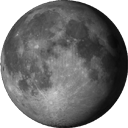Here is a little about the person behind these video’s along with this weeks video.
“David Fuller has been a stargazer for over 30 years, fascinated by the space programs of all countries and the wonders of what exists in space that can be seen visually and in other wavelengths. Tired of seeing other amateur astronomers complain about light pollution but not doing anything about it, in 2008 he began writing local newspaper articles that described how anyone can see what’s up in the night sky. In 2010, after noticing a serious lack of good videos online about how to align an equatorial mount, he took a consumer-grade digital camera and created a simple “how to” video that has become one of the most highly rated videos on the subject.
Sensing an opportunity, some better equipment was purchased and Eyes on the Sky moved from print to video. In about 12 month’s time, the YouTube channel for Eyes on the Sky went from zero subscribers and views to 300+ subscribers and over 40,000 views. By the end of 2012, that had leapt to 200+ subscribers and 300,000+ views! The new format of Eyes on the Sky in 2012 has been well-received, and new opportunities present themselves regularly for reaching more people about the night sky and light pollution reduction.
Dave is actively involved in local astronomy outreach efforts including his local club (Kankakee Area StarGazers in Kankakee IL), the Chicago Astronomer sidewalk astronomy outreach of Joe Guzman and the Will County Forest Preserve District in Illinois. He is also a member of the Chicago Astronomical Society, and works with several local groups dedicated to light pollution reduction. In addition to that, Dave offers astronomy presentations to institutions of informal education such as libraries and park districts to help empower people to learn about what they can find and see in the night sky, as well as how to use their optical instruments to maximum effectiveness.”

